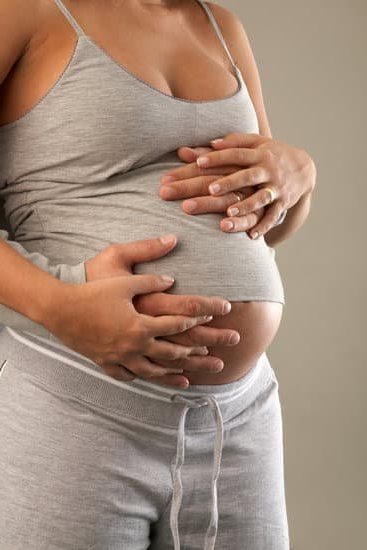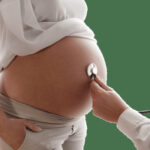What is the importance of maternal nutrition during pregnancy? Maternal nutrition plays a crucial role in supporting the health and development of both the mother and the growing fetus.
Proper nutrition during pregnancy can have long-term effects on the child’s health and development, making it essential for expectant mothers to prioritize their dietary needs. In this article, we will explore the impact of maternal nutrition on fetal development, common nutritional deficiencies in pregnant women, the importance of specific nutrients such as folic acid and iron, as well as tips for maintaining a healthy diet during pregnancy.
During pregnancy, a woman’s body undergoes numerous physiological changes to support the growth and development of the fetus. These changes result in an increased demand for nutrients such as vitamins, minerals, and macronutrients like protein and carbohydrates. Therefore, it is crucial for expectant mothers to pay close attention to their dietary intake to ensure that both their own nutritional needs and those of the developing baby are met.
In the following sections, we will delve into how maternal nutrition impacts fetal development, discuss common nutritional deficiencies that can arise during pregnancy, highlight the importance of specific nutrients like folic acid and iron, explore the role of protein and calcium in supporting a healthy pregnancy, and examine how maternal nutrition can influence the risk of pregnancy complications.
Additionally, we will provide valuable tips for maintaining a healthy diet during pregnancy and conclude with an overview of the long-term effects of maternal nutrition on child health and development.
The Impact of Maternal Nutrition on Fetal Development
During pregnancy, a mother’s diet plays a crucial role in the development of her fetus. The nutrients consumed by the mother are the building blocks for the baby’s growth and development. The impact of maternal nutrition on fetal development cannot be understated, as it has long-term effects on the health and well-being of the child.
Role of Essential Nutrients
Essential nutrients such as folic acid, iron, protein, and calcium are pivotal for fetal development. Folic acid is important for preventing birth defects of the brain and spine. Iron aids in the production of red blood cells, which carry oxygen to the fetus. Protein is essential for overall growth and development, while calcium helps in the formation of strong bones and teeth.
Development of Organ Systems
The fetus undergoes rapid growth and organ development during pregnancy. Adequate maternal nutrition ensures that these processes occur optimally. For example, a deficiency in certain nutrients can lead to impaired brain development or weak bone formation in the baby. This highlights just how crucial it is for pregnant women to maintain a balanced diet that meets their nutritional needs.
Long-Term Health Implications
Research has shown that maternal nutrition during pregnancy can have long-term effects on the health and development of the child. Children born to mothers with poor nutrition during pregnancy may be at higher risk for chronic diseases such as diabetes, obesity, and cardiovascular problems later in life. This emphasizes the importance of ensuring that pregnant women receive proper nutrition to support not only their own health but also that of their unborn children.
Common Nutritional Deficiencies in Pregnant Women
During pregnancy, it is crucial for expectant mothers to pay close attention to their nutritional intake to ensure the healthy development of their unborn child. Despite this awareness, many pregnant women still experience common nutritional deficiencies that can impact both maternal and fetal health.
Iron Deficiency
One of the most prevalent nutritional deficiencies in pregnant women is iron deficiency. Iron plays a vital role in producing hemoglobin, which carries oxygen to the body’s cells. During pregnancy, the body’s blood volume increases significantly, requiring more iron to support the growing fetus. A lack of iron can lead to anemia, causing symptoms such as fatigue, weakness, and increased risk of preterm delivery.
Folic Acid Deficiency
Folic acid is another essential nutrient for pregnant women. It is crucial in preventing neural tube defects in infants and supporting the growth and development of the baby’s brain and spinal cord. Deficiencies in folic acid have been linked to an increased risk of preterm birth and low birth weight infants.
Vitamin D Deficiency
Vitamin D is important for maintaining healthy bone development in both the mother and baby. Insufficient levels of this vitamin have been associated with an increased risk of preeclampsia, gestational diabetes, and bacterial vaginosis during pregnancy. Additionally, low levels of vitamin D in newborns have been linked with a higher risk of respiratory infections and wheezing.
It is evident that these common nutritional deficiencies can have significant implications for maternal and fetal health during pregnancy. Therefore, it is essential for pregnant women to work closely with healthcare providers to address these deficiencies through dietary changes or supplementation to ensure a healthy pregnancy for both mother and child.
The Importance of Folic Acid and Iron in Maternal Nutrition
During pregnancy, the importance of maternal nutrition cannot be overstated, as it directly impacts the health and development of the fetus. Two essential nutrients for pregnant women are folic acid and iron. Folic acid, also known as folate, is crucial for preventing neural tube defects in the developing baby’s brain and spinal cord. It is recommended that pregnant women consume at least 600 micrograms of folic acid daily to support proper fetal development.
Iron is another vital nutrient during pregnancy, as it is necessary for the production of hemoglobin, which carries oxygen to the body’s cells. Pregnant women require more iron to support the increased blood volume and to supply the fetus with oxygen.
Iron deficiency during pregnancy can lead to anemia, which can increase the risk of preterm birth and low birth weight. To prevent iron deficiency anemia, it is important for pregnant women to consume iron-rich foods such as lean red meat, poultry, fish, beans, and fortified cereals.
It is important for expectant mothers to consult with their healthcare providers about their folic acid and iron needs during pregnancy. In some cases, healthcare providers may recommend prenatal vitamins that contain the appropriate amount of these nutrients. By ensuring adequate intake of folic acid and iron through a balanced diet and supplementation if necessary, pregnant women can support healthy fetal development and reduce the risk of complications during pregnancy.
The Role of Protein and Calcium in Supporting a Healthy Pregnancy
Protein and calcium play a crucial role in supporting a healthy pregnancy. Proper intake of these nutrients is essential for the overall development of the fetus and the well-being of the mother. During pregnancy, a woman’s body goes through numerous changes, including an increase in blood volume, the growth of the placenta, and the development of the baby’s bones and tissues. Adequate protein and calcium intake is necessary to support these physiological changes.
When it comes to protein, it is important for the growth and repair of tissues. During pregnancy, protein needs increase to support the development of the baby’s organs and muscles. It also helps in maintaining the mother’s own tissue health. Good sources of protein include lean meats, poultry, fish, eggs, dairy products, legumes, nuts, and seeds. Incorporating these foods into a pregnant woman’s diet can help ensure that she gets enough protein to support a healthy pregnancy.
Calcium is another essential nutrient during pregnancy as it helps in building strong bones and teeth for both the mother and the baby. If a pregnant woman does not consume enough calcium from her diet, her body will draw on its own calcium stores to meet her baby’s needs which can put her at risk for bone density loss.
Good sources of calcium include dairy products such as milk, yogurt, cheese; leafy green vegetables such as kale and broccoli; fortified plant-based milks; tofu; and almonds. Ensuring adequate intake of calcium can contribute to a healthy pregnancy by supporting proper development for both mother and child.
Maternal Nutrition and Risk of Pregnancy Complications
During pregnancy, a mother’s nutrition plays a vital role in reducing the risk of various pregnancy complications. Here are some of the most common complications that can be influenced by maternal nutrition:
1. Gestational Diabetes: Proper nutrition, including a diet low in refined sugars and high in complex carbohydrates, is key to preventing gestational diabetes. A diet rich in fruits, vegetables, and whole grains can help regulate blood sugar levels and reduce the risk of developing this condition.
2. Pre-eclampsia: Maternal nutrition also plays a role in reducing the risk of pre-eclampsia, a serious condition characterized by high blood pressure and damage to organs such as the liver and kidneys. Adequate intake of calcium, magnesium, and potassium through foods like dairy products, leafy greens, and bananas can help prevent pre-eclampsia.
3. Premature Birth: Consuming enough protein is crucial for supporting the growth and development of the baby. A deficiency in protein can increase the risk of premature birth, as well as low birth weight and other complications. Incorporating lean meats, poultry, fish, eggs, dairy products, legumes, and nuts into a pregnant woman’s diet can help ensure an adequate protein intake.
It is evident that maternal nutrition during pregnancy plays a critical role in minimizing the risk of various pregnancy complications. By maintaining a healthy diet that includes essential nutrients such as folic acid, iron, protein, calcium, and others necessary for fetal development and maternal health, pregnant women can significantly reduce their likelihood of experiencing these potentially dangerous conditions.
Tips for Maintaining a Healthy Diet During Pregnancy
Maintaining a healthy diet during pregnancy is crucial for the overall well-being of both the mother and the developing fetus. A balanced and nutritious diet can help prevent complications such as neural tube defects, low birth weight, and preterm birth. Proper maternal nutrition also plays a significant role in reducing the risk of gestational diabetes and preeclampsia, which are common pregnancy-related conditions.
One of the most important aspects of maintaining a healthy diet during pregnancy is consuming a variety of nutrient-dense foods. This includes fruits, vegetables, whole grains, lean proteins, and dairy products. Pregnant women should aim to eat a colorful array of fruits and vegetables to ensure they are getting essential vitamins, minerals, and antioxidants necessary for fetal development.
In addition to healthy food choices, pregnant women should also focus on staying hydrated by drinking plenty of water throughout the day. Dehydration can lead to complications such as urinary tract infections and even preterm labor. It’s recommended that pregnant women drink at least eight to ten 8-ounce glasses of water daily to support proper digestion, circulation, and amniotic fluid production.
| Healthy Diet Tips During Pregnancy | Importance |
|---|---|
| Consume nutrient-dense foods | Essential for fetal development |
| Stay hydrated by drinking water | Supports proper digestion and amniotic fluid production |
The Long-Term Effects of Maternal Nutrition on Child Health and Development
Maternal nutrition during pregnancy has a lasting impact on the health and development of a child. The nutrients that a mother consumes while pregnant play a crucial role in the growth and development of the fetus, as well as in influencing the child’s long-term health outcomes. Adequate maternal nutrition is essential for ensuring the overall well-being of both the mother and her baby.
One of the key factors influenced by maternal nutrition is the child’s risk for chronic diseases later in life. Studies have shown that poor maternal nutrition during pregnancy can increase the likelihood of conditions such as obesity, diabetes, and cardiovascular disease in offspring. This highlights the importance of consuming a balanced diet rich in essential nutrients to support healthy fetal development and reduce the risk of future health complications for the child.
Additionally, maternal nutrition has been linked to cognitive development in children. Certain nutrients, such as folic acid and omega-3 fatty acids, are critical for brain development during pregnancy. Inadequate intake of these nutrients can potentially lead to cognitive impairments in children.
Therefore, maintaining proper maternal nutrition not only supports physical growth but also contributes to optimal brain function in offspring. Overall, understanding what is the importance of maternal nutrition during pregnancy is crucial for promoting positive long-term health outcomes for both mothers and their children.
Conclusion
In conclusion, the importance of maternal nutrition during pregnancy cannot be overstated. As outlined in this article, proper nutrition plays a critical role in fetal development, the prevention of common deficiencies, and reducing the risk of pregnancy complications. Folic acid and iron are essential for preventing birth defects and supporting healthy blood production, while protein and calcium are crucial for muscle and bone development in the growing fetus.
Maintaining a healthy diet during pregnancy not only benefits the mother but also has long-term effects on the health and development of the child. Research has shown that maternal nutrition can impact a child’s risk of chronic diseases later in life, as well as their cognitive development and overall well-being. With this in mind, it is clear that the significance of maternal nutrition extends far beyond just the nine months of pregnancy.
In light of these findings, it is imperative for pregnant women to prioritize their nutritional intake and make informed choices about their diet. By consulting with healthcare professionals and adhering to recommended guidelines, expectant mothers can ensure that they are providing their bodies with the necessary nutrients for a healthy pregnancy and giving their child the best possible start in life.
Ultimately, investing in maternal nutrition isn’t just an investment in one’s own health, but also in the future well-being of their child.
Frequently Asked Questions
Why Is Nutrition So Important During Pregnancy?
Nutrition is crucial during pregnancy because it directly impacts the growth and development of the baby. A pregnant woman’s body needs extra nutrients to support the developing fetus, and a well-balanced diet can help prevent complications such as low birth weight or premature birth.
Proper nutrition can also reduce the risk of certain birth defects and contribute to the overall health of both mother and child.
Why Is It Important for Mother to Be Healthy During Pregnancy?
It is important for a mother to be healthy during pregnancy because her well-being directly affects the health of the growing baby. A mother’s health before and during pregnancy can impact the baby’s risk of developing chronic diseases later in life.
Additionally, a healthy mother is better equipped to handle the physical and emotional demands of pregnancy, labor, and newborn care.
What Nutrients Are Important for Mothers During Pregnancy?
During pregnancy, mothers need a variety of important nutrients to support their own health as well as that of their growing baby. Key nutrients include folic acid, iron, calcium, protein, vitamin D, omega-3 fatty acids, and several others.
These nutrients are essential for fetal growth and development, as well as for supporting the increased blood volume and metabolic changes in a pregnant woman’s body.

Welcome to my fertility blog. This is a space where I will be sharing my experiences as I navigate through the world of fertility treatments, as well as provide information and resources about fertility and pregnancy.





